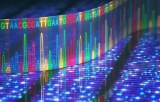
NGS for diagnostic
High-throughput DNA sequencing (Next Generation Sequencing or NGS) provides considerable potential for knowledge of the human, bacterial or viral genome.
Next Generation Sequencing (NGS) technology is being rapidly integrated into clinical laboratory tests. Current applications include the detection of germline variants in inherited diseases, somatic variants in cancers, circulating free cellular DNA subpopulations and unique viral or microbial genomes in metamicrobial infections or genomes in normal human flora or altered.
The advantage of using NGS in diagnosis is the introduction of testing of many genes in both a relatively short time and relatively low cost, resulting in more molecular diagnostics.
Because cancer is a genetic disease caused by inherited or somatic mutations, new DNA sequencing technologies can be applied to the detection, management, and treatment of the disease.


